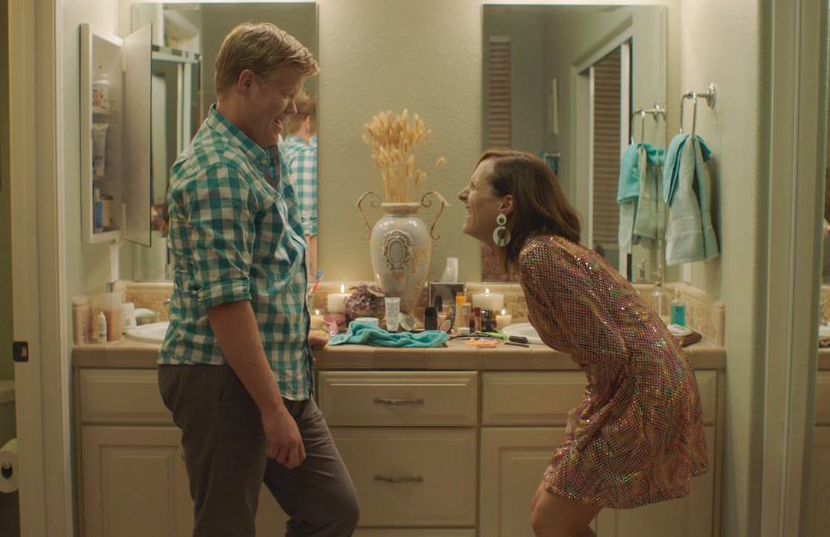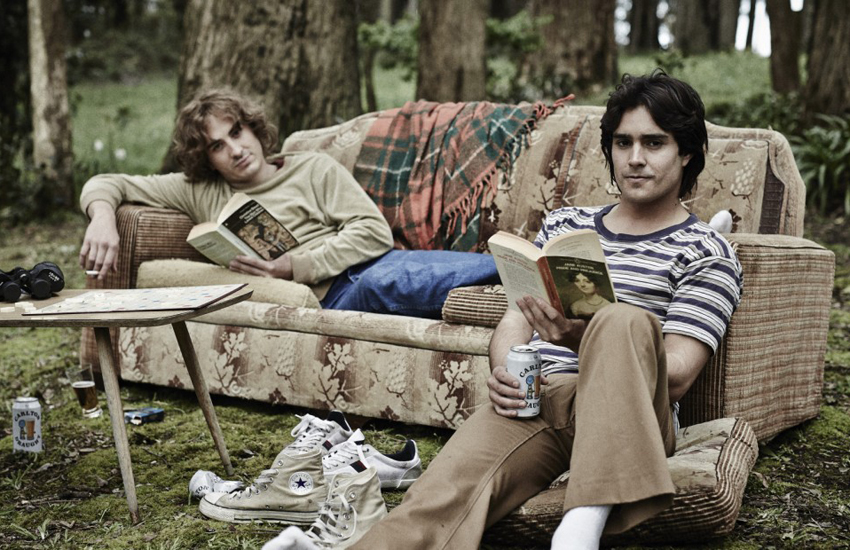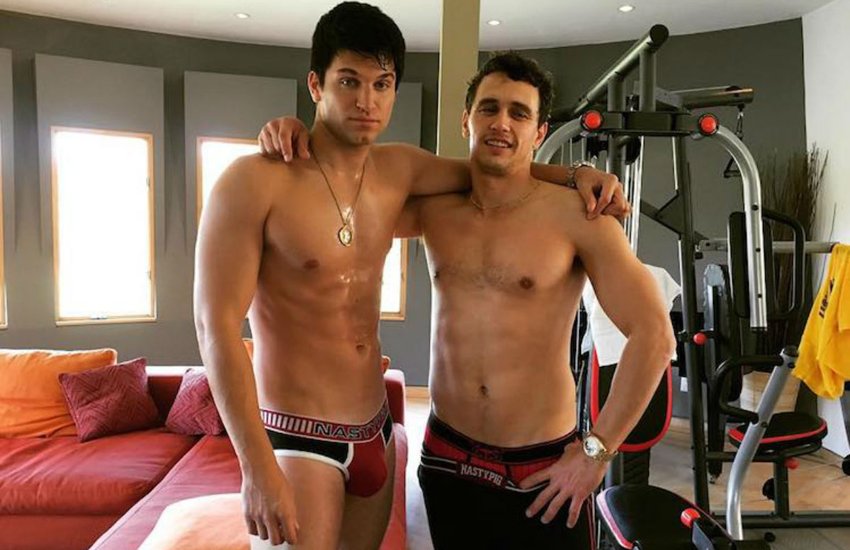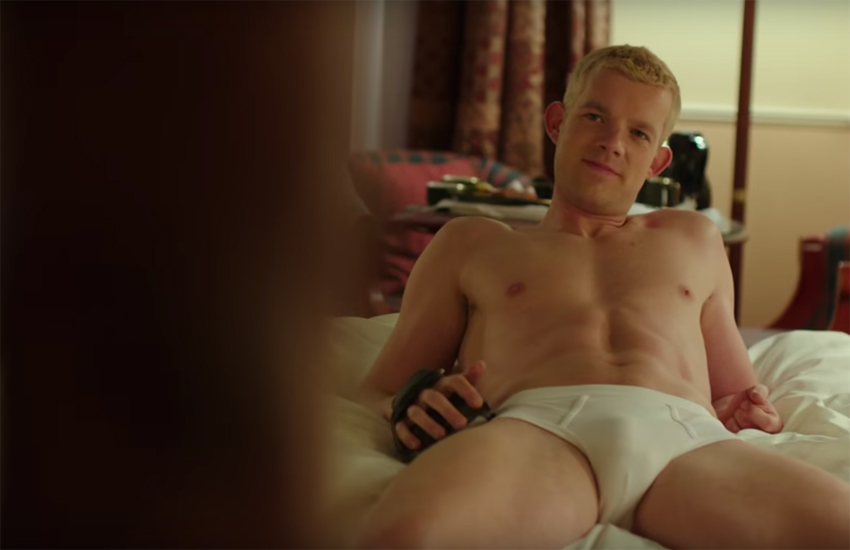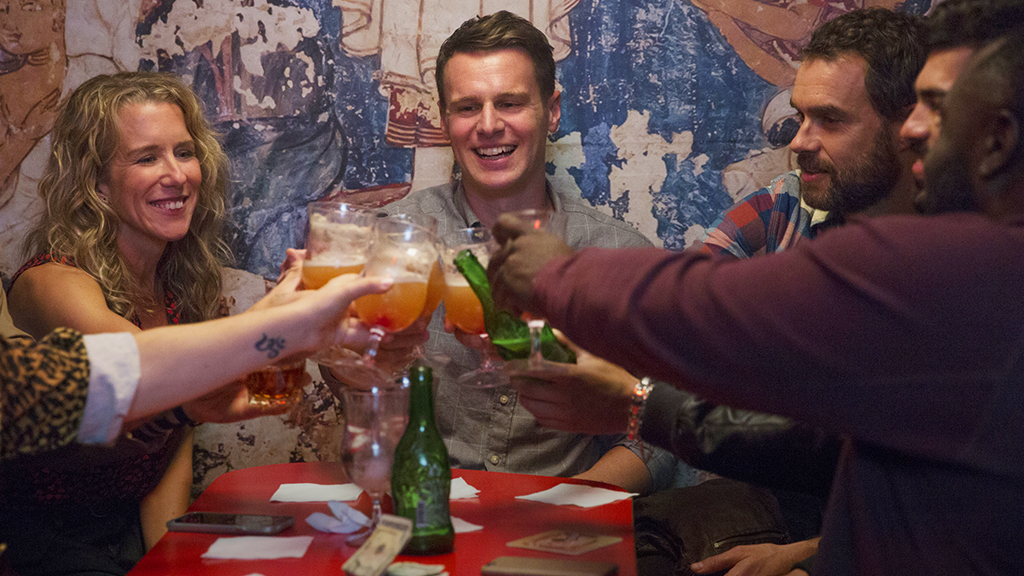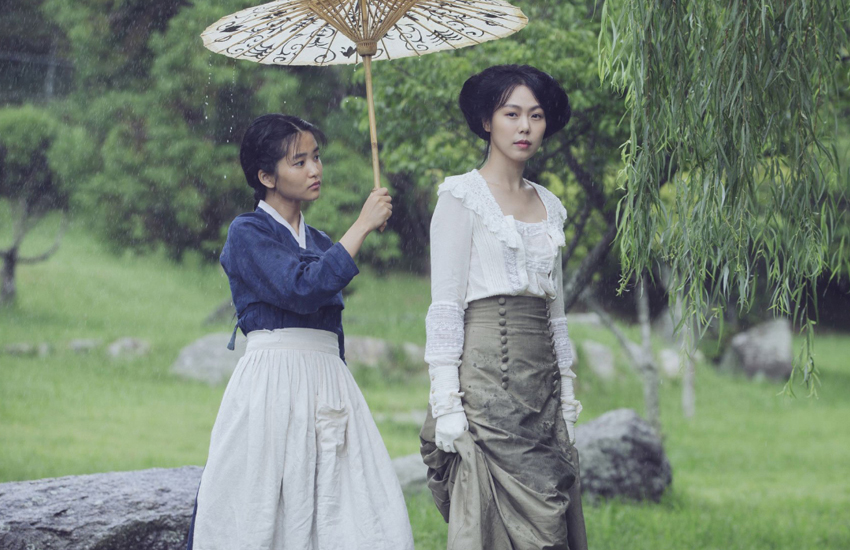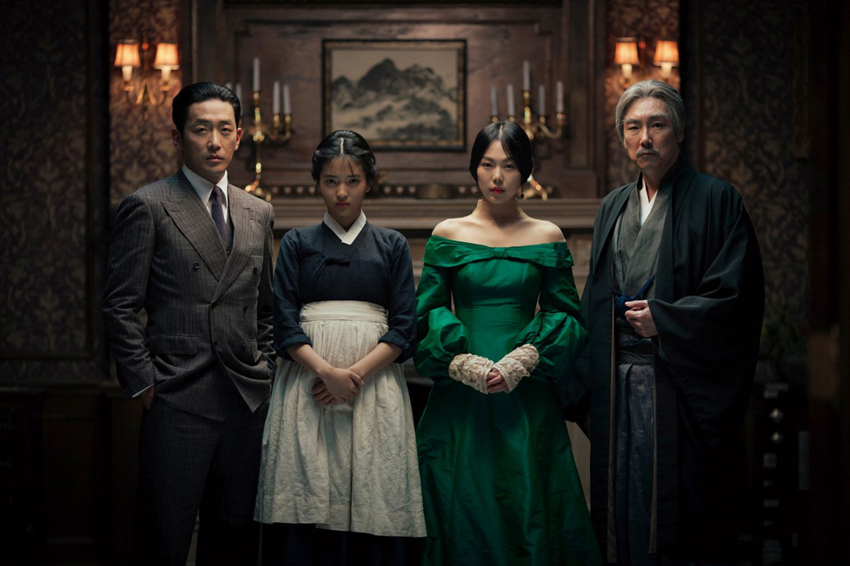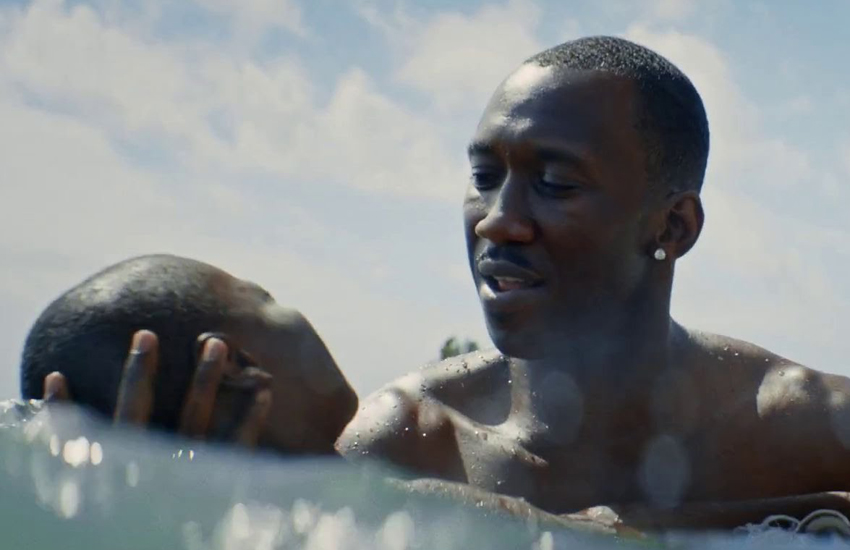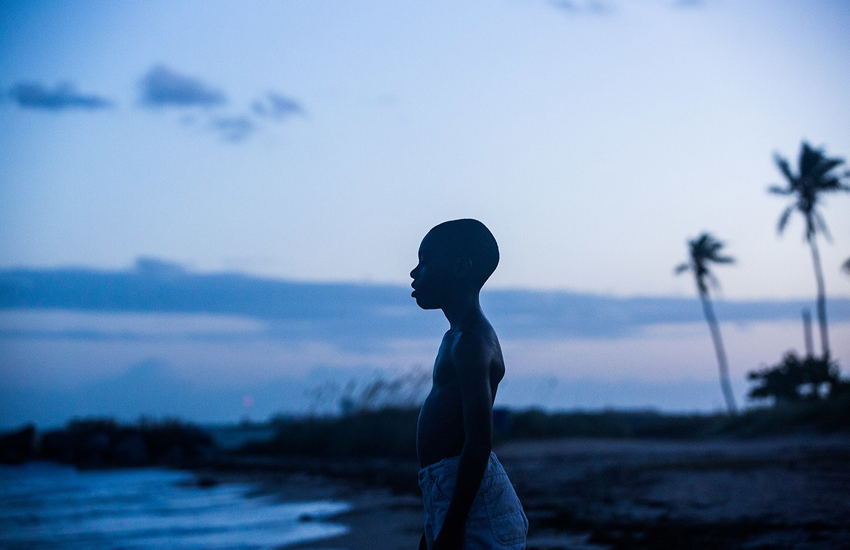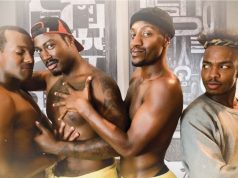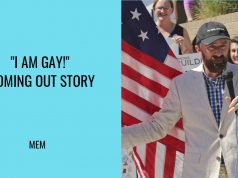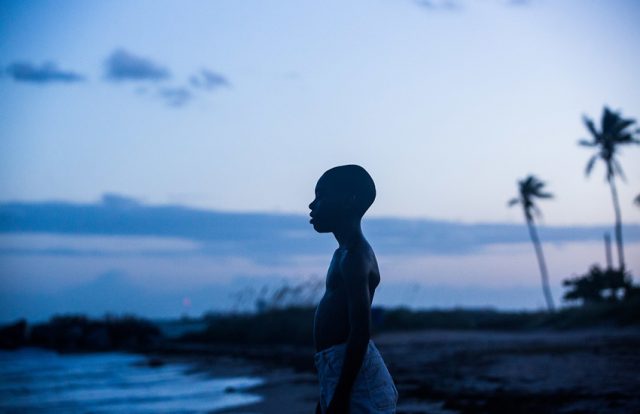
From King Cobra to Moonlight, is this year’s crop of queer films the strongest yet?
Are we living in a golden age of gay film? Possibly. From Pride to Carol to The Danish Girl to Tangerine, the last few years have seen a slew of award-worthy films featuring gay and LGBTI characters.
Granted, major films featuring prominent lesbian and trans characters have been sadly thin on the ground this year.
That said, representation of gay men on screen has been strong and varied – and one of 2016’s best movies focuses on a dynamic relationship between two women. Here, we count down our seven favourite films of the year…
7 Other People
Written and directed by SNL’s Chris Kelly, Other People is a blackly comic drama about downbeat young gay writer David (Jesse Plemons) who returns home to care for his dying, cancer-stricken mother (a fabulously vivacious Molly Shannon, until the bitter end).
Hollywood films about death often try to reinvent the wheel, relying too heavily on humor, or avoiding excessive emotion in attempt to not appear cliched. Kelly, having lived the experience, instead offers a straightforward, unfussy representation. Other People is honest, uncalculated and full of love.
6 Holding the Man
The latest adaptation of the late Tim Conigrave’s seminal 90s memoir – about he and his life partner’s experience of HIV in the late 80s and early 90s – is beautifully tasteful.
Released in 2015 in its native Australia, but making its impact in Europe this year, this exquisite love story boasts impressive breadth and depth. We first meet Tim and John, played luminously by Ryan Corr and Craig Stott respectively, as 70s schoolboys. Of course, they lock eyes on a football pitch. In one of the film’s only flaws, both wear what appear to be painfully bad wigs.
They soar out of the closet and enjoy a passionate love affair that spans decades. They defy meddling parents, homophobic friends, HIV diagnoses and the distance and time imposed when life drags two halves of a couple in different directions.
However, when Craig’s contracts cancer as a result of his HIV, his health swiftly deteriorates. From here on in, Tim rarely leaves his side, and the utter devotion for the man he holds is engrained right there in the writing and the acting. Like Other People, it sounds like a depressing watch, but it’s not – it’s inspiring.
5 King Cobra
His LGBTI filmography includes Milk, Howl and I Am Michael. But the ever-ambiguous James Franco out-gays himself (and then some) in this fantastically pulpy and sleazy gay porn drama, which was probably the most hotly-anticipated LGBTI film of the year.
It gained notoriety when its subject, Brent Corrigan – a.k.a. Sean Lockhart, the ‘adult industry personality‘ who rose to gay porn fame while underage, posing as an 18-year-old – accused it of ‘bastardising‘ his life. In truth, it’s so silly, and takes so many liberties, it barely qualifies as a biopic at all. Plus, Brent comes off quite well, ending up the only likeable character with any moral compass.
Fearless former Disney star Garrett Clayton is our magnetically sexy protagonist. Christian Slater offers dramatic heft as his lonely, doomed porn producer mentor Bryan Kocis (named Stephen in the film). Meanwhile Franco plays deranged rival gay porn producer Joe. He boasts explosive chemistry with Keegan Allen as his dimwit boyfriend Harlow, himself a rising porn star who escorts on the side.
The movie underperformed, earning mixed-to-negative reviews. Indeed, it’s probably not an awards contender. One major flaw is the awkward tonal shift from immature, exaggerated humour to dark drama, when one of the characters meets a grisly end.
But any gay man who’s even remotely aware of Corrigan’s existence will find it compelling. And we loved its nimble pace and absurd, no-holds-barred depiction of sexuality. (Case in point, James Franco screaming: ‘GIVE ME THAT BIG DICK!’ with suspicious intensity…).
4 The Pass
Openly gay British actor Russell Tovey landed himself in hot water last year when, in an interview, he patted himself on the back for playing straight so convincingly. But his stunning performance in intimate sports drama The Pass – as a deeply closeted premiership footballer holed up in a hotel room at three different stages of his life – cast his comments in a different light.
More to the point, Tovey’s past characters have been very one note: ‘cheeky chappie’. (Including his well-received turn as Patrick’s boss-turned-boyfriend in Looking, when you think about it). At first, it’s more of the same in The Pass.
But then Tovey pulls the rug out from under you by imbuing archetypal Essex boy Joe with palpable, almost unbearable grief, regret and foreboding as he gets older.
Arinzé Kene is equally as amazing as fellow football fanatic Ade. In part one, over the space of one night, he is Joe’s roommate, competitor, friend and, ultimately, lover. Reunited ten years later (in a far flashier hotel, owing to Joe’s glittering career), Ade is working as a plumber and in a happy, committed gay relationship. Joe, on the other hand, is in a different place.
Some will question the simplicity of the plot and regimented structure, (it was previously a play), but so much emotion is harnessed with so little. And yes, both Kene and Tovey are mostly topless throughout, and yes, their physiques beggar belief.
But don’t expect a salacious gay porn fantasy brought to life. If that’s what you’re after, see King Cobra. There are no any sex scenes here. And when at one point the camera does explore the guys’ entwined, naked bodies, it’s a movingly beautiful – and sad – moment.
3 Looking: The Movie
It’s Tovey again. (By the way, I’m the first to say I’m not his biggest fan. But this is the second film this year in which he’s moved me to tears.)
When smart, sensitive HBO drama Looking got cancelled after two seasons this year, there was a fittingly muted outcry.
But the story of hopelessly clueless San Francisco man-child Patrick (Jonathan Groff) and his handsome, complicated pals (described by a friend of mine recently as a ‘bunch of fuck ups’. Little harsh…) got a loving send off this year, with this feature length movie.
This writer questioned Looking’s casual approach to LGBTI issues when it first started. And it still rings true that the characters’s problems apply only to a very specific, privileged group. Which is why it pains me to admit how profoundly I identified with the show in hindsight.
Looking: The Movie isn’t perfect. As per, hardly anything actually happens, and the mumbling makes you want to tear your hair out. And Patrick – who returns to SF after a year in Denver for Augustine’s wedding, before promptly making doe-eyes at his ex Richie – is annoying as hell. And yet, this is the show at its most stunningly realistic.
As Patrick, Augustine and Dom make their last few gentle, televised steps towards happiness, you’re left with a profound curiosity as to how these men will fare in the future. I feel a desperate, aching desire for them to be OK. And then I remember they’re not real.
2 Handmaiden
This mindblowing, visionary epic about a secret lesbian love affair is the artistic antidote to Looking. The magnum opus of South Korean director Park Chan-wook (whose 2013 English language thriller Stoker was written by Wentworth Miller and starred Nicole Kidman) seamlessly balances romance, erotica, mystery, crime, comedy, horror and even a touch of trashy melodrama.
And all with a sprinkling of politics and strong, pervasive queer agenda to boot. The cherry on top is some light gender play at the end.
It clocks in at two hours and 20 minutes, split into three 45 minute sections. But the dense, multilayered and unpredictable plot calls for it. This is a film that rewards patience. But even if you can’t keep track of what’s going on, the resplendent style will keep you more than entertained.
In Japanese-occupied Korea in the 40s, we meet sprightly master pickpocket Sook-hee (a delightful Kim Tae-ri). She is hired by seedy conman Count Fujiwarato (the dashing Ha Jung-woo) to pose as a humble handmaiden to a childlike, overprotected heiress.
Cue Lady Hideko (the enigmatic Kim Min-hee), rattling around her grand, possibly haunted mansion like a young, stylish Miss Havisham.
The wily pair conspire for the Count to marry the Lady, have her declared insane and take her money. But things aren’t all they seem. And matters only get more complicated when Sook-hee and Lady Hideko fall in love.
Throw in Cho Jin-woong as Hideko’s abusive, perverted Uncle, and you have a very, very adult fairytale. The most explicit gay sex scenes in this list appear here. But they aren’t as gruelling and crude as in, say, 2013’s Blue Is The Warmest Colour. For the most part, they’re elegantly beautiful. But then again, even the scenes of violence are beguiling – such is Chan-wook’s commitment to mind-bogglingly beautiful visuals. Amazing.
1 Moonlight
The last time a film with a prominent LGBTI plot truly enjoyed Oscar glory was Brokeback Mountain 12 years ago. But could Moonlight succeed where even Brokeback failed, by wining Best Picture?
It’s possible – this movie is a humbling masterpiece. Like The Pass, it’s comprised of three portraits of a man struggling to come to terms with his sexuality. These wildly different stages of life are played by different actors.
Like Looking, it has a gentle authenticity and languid pace. Like The Handmaiden, it has an epic scale. But it rises above all of the aforementioned with its flawless execution.
Written and directed by Barry Jenkins and based in an impoverished Miami neighborhood, this sensitive drama concerns the intensely introverted Chiron. We fist meet him as a bullied and apparently effeminate child, played by Alex Hibbert.
Raised in poverty by his troubled but loving single mother (Naomie Harris), he finds solace in the home of kindly drug dealer Juan (House of Cards’ Mahershala Ali, always a powerful screen presence) and his partner Teresa (an irresistibly warm Janelle Monae in a supporting role).
The action then flashes forward to Chiron as an adolescent (Ashton Saunders). Here, we find him corroded by his mother’s drug addiction and prostitution, plus his own burgeoning homosexuality. A profoundly romantic encounter with his only friend Kevin leads to disaster. Chiron serves time and further withdraws.
When we meet him a third time as an adult (Trevante Rhodes), he’s an Atlanta drug dealer. His masculine identity is overwhelming. However, when Kevin gets in touch out of the blue, Chiron returns to Miami in search of love and redemption.
This film boasts perfect performances across the board. Sewn together, the whole is more than the sum of its parts. Naomie Harris is a revelation as Chiron’s mother in a savage, Oscar-worthy performance, filmed in a matter of days during her Spectre press tour last year.
All the actors playing Chiron and Kevin are flawless, but the film really belongs to the adult Chiron. Reunited with the ghosts of his past, Rhodes communicates power and vulnerability as one.
What makes Moonlight invaluable is the empathy with which it treats its protagonist. I’ve been out since I was 15. At times, I’ve struggled to understand why any grown up would choose to hide their sexuality.
But after what feels like 20 years as Chiron’s silent companion – the shaky camerawork makes you feel like you’re right there with him – his deadlock makes perfect sense. It’s scary.
Chiron’s sexuality is so secret, it’s rarely addressed on screen. When it is, it’s momentary and mostly sub-textual. More tangible are the obstacles of race and class he faces. An inattentive viewer might think they were watching another film entirely. So subtle is the message about accepting who you are, that it’ll seep into your soul without you realizing.
As such, Moonlight has universal appeal. The performances are so compelling that I deign anyone not to identify with Chiron, regardless of their sexuality. Because Moonlight breaks open and evolves what an LGBTI film is – to the point where it barely is one. Astonishing.


